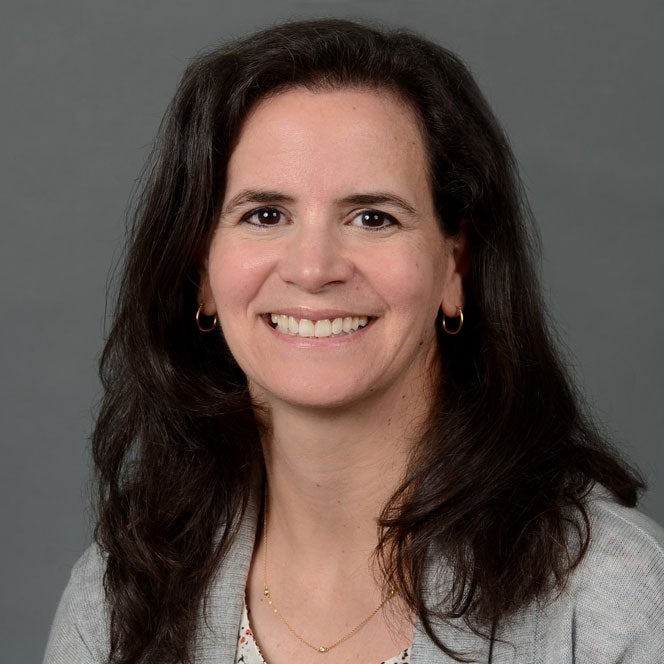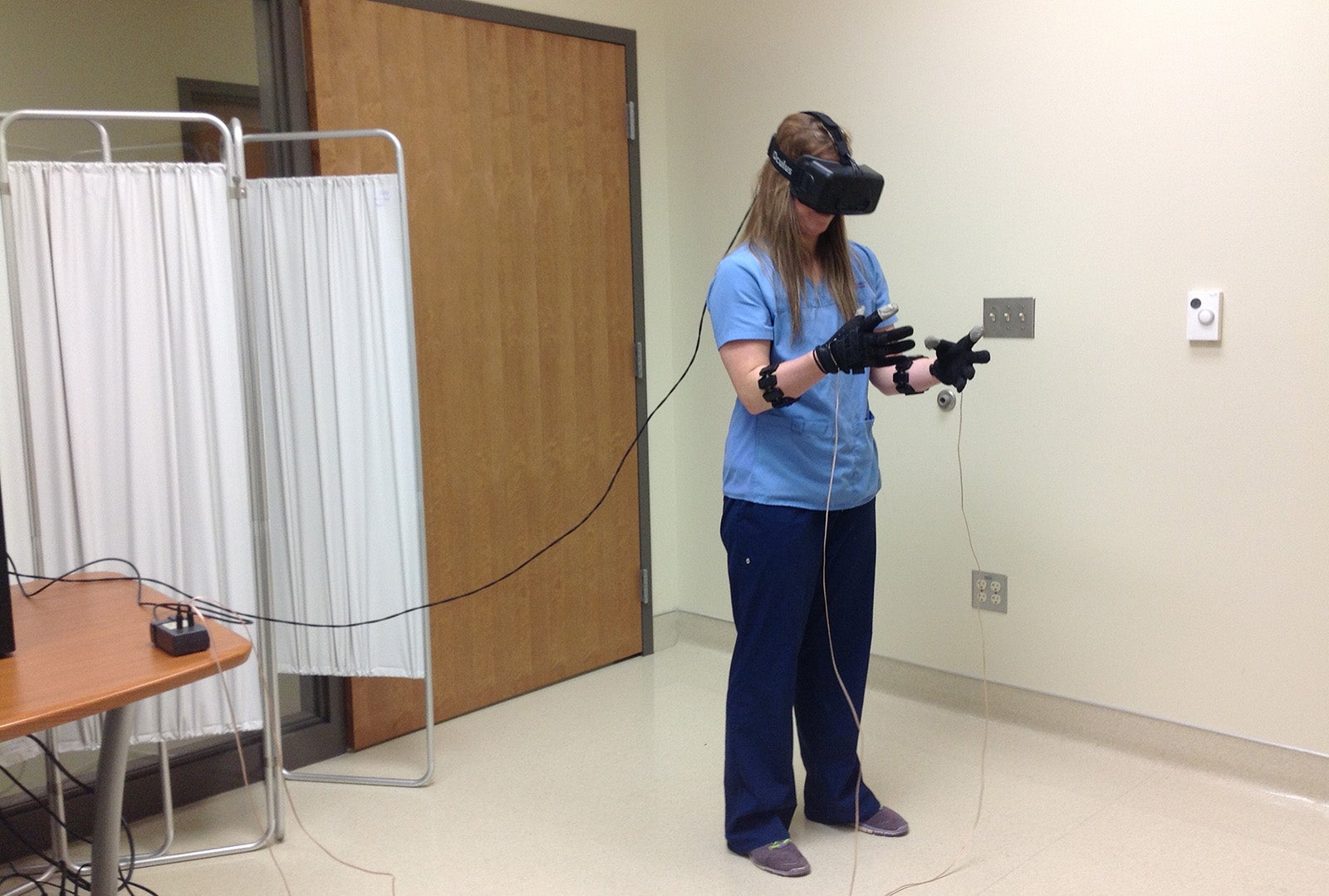The VR4 Health Sciences Education program at the University of Utah recently awarded its inaugural grant of $100,000 to School of Nursing Associate Professor Kate Doyon and her co-investigators Nancy Allen and Julie Gee, two associate professors at the University of Utah’s College of Nursing.

The grant benefits health care students through the use of virtual reality. It’s the product of a collaboration between the Spencer S. Eccles Health Sciences Library and The Therapeutic Games & Applications Lab at the University of Utah.
Doyon’s research team proposed designing technology that teaches providers about a range of non-healthcare related barriers patients may face when trying to follow a prescribed plan of care.
“As providers, we have to know what the barriers and facilitators are to get [patients] on a plan of care,” she said. “It should be routine to ask the patient about their world.”
But often providers just aren’t aware of these barriers; it’s not standard practice to ask patients about non-healthcare factors that greatly impact one’s ability to follow a treatment plan, like access to transportation, healthy produce or exercise space.
Doyon hopes their program could change this.
“At the end of the day a plan must be patient-centered,” she said.
Otherwise, patients can be unfairly designated non-compliant with their treatment plans. In reality, there may be forces outside of a patient’s control hindering their ability to comply.

The virtual reality scenarios will put students in the shoes of a patient who has difficulty following a plan of care due to these kinds of factors, like not having a pharmacy nearby or a quiet place at home to recuperate.
As healthcare students become more aware of existing hurdles in and outside of the home, they’ll be able to make better treatment plans and effectively become better providers.
One of the most exciting parts about the project for Doyon is that it is “interdisciplinary on a much larger scale.”
In addition to the inter-institutional efforts of Boise State and the University of Utah, the pilot program will engage medical, dental, nursing and social work students. And while Doyon, Allen and Gee bring a wealth of nursing, curriculum and research experience to the project, the virtual reality team from The Therapeutic Games & Applications Lab will actually design and code the program.
“It’s always fun to work with people outside of healthcare,” Doyon said. “We’re all trained to solve problems so differently.”
As this is her first time conducting virtual reality research, Doyon is particularly eager to learn the capabilities of the technology.
“The more realistic we can make the [virtual reality], the more of an impact we can have,” she said.
Though the grant funds one year of research, the team is optimistic about the project’s outcomes and hopes to apply for additional funding from the National Institutes of Health later on.